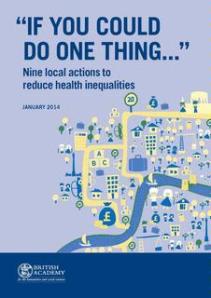By Dr. Trevor Hancock
A couple of weeks ago I was in Manchester for the International Conference on Urban Health, and spent a couple of hours at the People’s History Museum. Manchester is such an interesting city, because it was the first industrial city, and it has a powerful history of social and political reform. Perhaps most dramatically Marx and Engels worked there together (Engels’ description of conditions in Manchester is hair-raising), much of the Communist Manifesto was written there, and there are many other examples of social and political reform. The fight for democracy came out of these workplaces, streets, and cities, and in many ways it was a fight motivated by concerns for the health and wellbeing of the population.
Remember, it was an investigation into the causes of typhus in Upper Silesia that led Rudolf Virchow to his famous 1848 statement that “medicine is a social science, and politics but medicine writ large”. He said this in response to Prussian politicians (to whom he had reported) telling him his report was a political report, not a medical report, because he recommended that what was needed was the “introduction of Polish as an official language, democratic self-government, separation of church and state, and the creation of grassroots agricultural cooperatives”.
Why does this come to mind now? Because I believe what we are seeing in the state of democracy around the world, and especially here in Canada, is a vitally important political and ethical issue with profound implications for public health. We have already seen that the Harper Government has almost always acted in opposition to the evidence and the interests of public health (climate change, asbestos mining, gun control and safe injection sites, to name but 4 issues – see my July 24th 2013 blog). We have seen that they have muzzled their own scientists, destroyed their libraries, laid many of them off, cut the funding to environmental groups and gone after them using the Canada Revenue Agency and other means, all in an effort to silence those who oppose their blindly pro-business, anti-environment and anti-public health agenda.
But now, and most egregious and dangerous of all, they are trying to pervert democracy in Canada with their so-called Fair Elections Act (in the double speak of the Republican-style naming of Bills that the Harper government has adopted, we know a “fair” act will be anything but fair!). Just this week, a group of international scholars and political scientists sent an open letter to the Globe and Mail in which they write:
(we) are concerned that Canada’s international reputation as one of the world’s guardians of democracy and human rights is threatened by passage of the proposed Fair Elections Act. We believe that this Act would prove [to] be deeply damaging for electoral integrity within Canada, as well as providing an example which, if emulated elsewhere, may potentially harm international standards of electoral rights around the world. In particular, the governing party in Canada has proposed a set of wide-ranging changes, which if enacted, would, we believe, undermine the integrity of the Canadian electoral process, diminish the effectiveness of Elections Canada, reduce voting rights, expand the role of money in politics, and foster partisan bias in election administration.
Read full letter: http://www.theglobeandmail.com/news/politics/letter/article17561359/
The Globe and Mail itself, in an unprecedented series of five editorials, has denounced the Bill and the process (see http://www.theglobeandmail.com/news/politics/scholars-denounce-conservative-governments-proposed-fair-elections-act/article17561354/ for links to these editorials).
The Harper government’s attacks on public health and the environment will only be strengthened by the rigging of elections to give them an unfair advantage and a continuing mandate. We must all oppose this undemocratic Bill on grounds of democracy, social justice, environmental sustainability and public health, all of which are threatened by this government and its dangerously undemocratic tendencies.

Dr Trevor Hancock is a Professor and Senior Scholar, School of Public Health and Social Policy at the University of Victoria.













